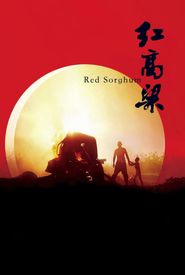Mo Yan, a pen name for Guan Moye, emerged into the world in 1955, his arrival marking the beginning of a life that would be deeply rooted in the rustic charm of Gaomi, a rural town nestled within the picturesque province of Shandong, situated in the north-eastern region of China.
As the son of farmers, Mo Yan's formative years were spent toiling in the fields, his early days marked by the physical labor and rustic simplicity of agricultural life. Later, he transitioned to working in a factory, where he gained valuable experience and developed a strong work ethic.
However, Mo Yan's educational journey was disrupted by the tumultuous period of the Cultural Revolution, which began in the late 1960s. At the tender age of 12, he left school to work and eventually joined the People's Liberation Army in 1976, marking a significant turning point in his life.
It was during his time in the army that Mo Yan discovered his passion for literature and began to hone his writing skills. This period of his life would prove to be a transformative experience, laying the foundation for his future success as a writer and cementing his reputation as one of China's most celebrated literary figures.
Mo Yan's emergence as a prominent literary figure was catalyzed by the publication of his novella "Touming de hong luobo" in 1986, which subsequently underwent translation into French as "Le radis de cristal" in 1993. This significant literary milestone served as the launching pad for his career as a novelist, paving the way for the release of several highly acclaimed books, including "Honggaoliang jiazu", also known as "Red Sorghum", in 1987.
The novel, a compilation of five interconnected stories, is set against the backdrop of Gaomi and spans several tumultuous decades of the 20th century. Through his vivid depictions, Mo Yan masterfully captures the essence of bandit culture, the Japanese occupation, and the grueling realities faced by impoverished farm workers.
Mo Yan's literary output is deeply rooted in his own formative years spent in rural China, where he drew inspiration from the rich cultural and historical heritage of the region. His novels, often navigating the complex terrain of social and political transformation, masterfully integrate elements of fantasy and realism to convey the intricacies of human emotion and idea. Among his most notable works is Tiantang suantai zhi ge, also known as The Garlic Ballads, which debuted in 1988 and later received English translation in 1995. This novel garnered widespread acclaim for its biting critique of contemporary Chinese society, earning a reputation as subversive among some critics.
Mo Yan's literary output in recent years has been marked by the publication of notable works, including Fengru feitun, a historical novel that debuted in 1996 and later received English translation treatment in 2004 under the title Big Breasts and Wide Hips. This substantial novel is a sweeping historical epic that delves into the experiences of a single family, tracing their journey across the 20th century.
Mo Yan, a renowned Chinese author, has garnered widespread acclaim for his literary prowess, extending beyond the realm of his novels to encompass a diverse array of short stories and essays.













